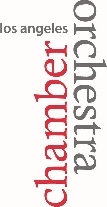SILENT NO MORE
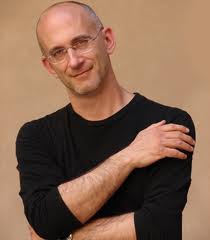 The Los Angeles Chamber Orchestra’s (LACO) 24th annual silent film gala and benefit performance showcased the relationship between various show business elements in this entertainment capital. Movie star Dustin Hoffman introduced a Buster Keaton movie (1923’s Our Hospitality), Walt Disney Corporation General Counsel and Senior Vice President Edward J. Nowak introduced a “lost” Disney cartoon (1928’s Hungry Hobos), National Film Preservation Foundation chairman Roger L. Mayer updated the Royce Hall crowd on the state of celluloid conservation, and LACO board member Hanna M. Kennedy revealed how Mr. Hoffman got roped into his 13-year affair with the orchestra (he and his wife once accidentally sat in Ms. Kennedy’s seats at the Alex Theatre). Incidentally, some music was played.
The Los Angeles Chamber Orchestra’s (LACO) 24th annual silent film gala and benefit performance showcased the relationship between various show business elements in this entertainment capital. Movie star Dustin Hoffman introduced a Buster Keaton movie (1923’s Our Hospitality), Walt Disney Corporation General Counsel and Senior Vice President Edward J. Nowak introduced a “lost” Disney cartoon (1928’s Hungry Hobos), National Film Preservation Foundation chairman Roger L. Mayer updated the Royce Hall crowd on the state of celluloid conservation, and LACO board member Hanna M. Kennedy revealed how Mr. Hoffman got roped into his 13-year affair with the orchestra (he and his wife once accidentally sat in Ms. Kennedy’s seats at the Alex Theatre). Incidentally, some music was played.
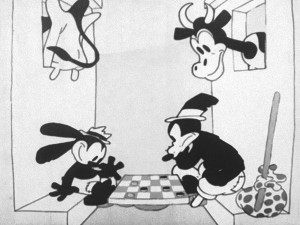 Mark Watters’ score for Hungry Hobos was given its world premiere, with Mr. Watters conducting the work himself. Incorporating traditional American melodies as well as the comedy-music convention of synchronizing musical effects to onscreen antics, the score meshes well with the low-comedy elements of the five-minute cartoon itself. Concerned with the illicit railroad adventures of Mickey Mouse precursor Oswald the Lucky Rabbit and his rail-riding partner Peg-Leg Pete, Hungry Hobos was among the many films Walt Disney made while under contract to Universal Studios, and one of the last completed before a contract dispute ended Disney’s Universal tenure. The short is also notable for being thought destroyed until its 2011 rediscovery in a British film library.
Mark Watters’ score for Hungry Hobos was given its world premiere, with Mr. Watters conducting the work himself. Incorporating traditional American melodies as well as the comedy-music convention of synchronizing musical effects to onscreen antics, the score meshes well with the low-comedy elements of the five-minute cartoon itself. Concerned with the illicit railroad adventures of Mickey Mouse precursor Oswald the Lucky Rabbit and his rail-riding partner Peg-Leg Pete, Hungry Hobos was among the many films Walt Disney made while under contract to Universal Studios, and one of the last completed before a contract dispute ended Disney’s Universal tenure. The short is also notable for being thought destroyed until its 2011 rediscovery in a British film library.
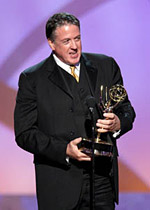 Alas, the cartoon’s contribution to cinema history is more in its circumstances than in itself. Looking as good as it ever did after David A. Bossert’s extensive restoration, the picture is a typical late-contract churn-’em-out black-and-white assembly line product, short on visual panache and storytelling imagination of the sort associated with Disney Studios’ golden age, which was still well in the future (1937’s Snow White and the Seven Dwarfs didn’t come about for almost another decade).
Alas, the cartoon’s contribution to cinema history is more in its circumstances than in itself. Looking as good as it ever did after David A. Bossert’s extensive restoration, the picture is a typical late-contract churn-’em-out black-and-white assembly line product, short on visual panache and storytelling imagination of the sort associated with Disney Studios’ golden age, which was still well in the future (1937’s Snow White and the Seven Dwarfs didn’t come about for almost another decade).
But Our Hospitality, Keaton’s comic take on the Hatfield/McCoy feud of the early nineteenth century, is a relatively important milestone. Running 65 minutes, it was one of the first of Keaton’s features after three years of producing shorts. Its outrageous stuntwork, including much delightful time spent on a primitive train 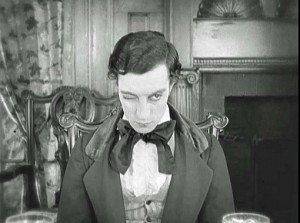 ride from New York to Kentucky, anticipates more famous gags in The General (1926) and others. The picture illustrates what an unfettered independent creativity can do, especially contrasted with Keaton’s catastrophic implosion once MGM acquired his contract and tried to jam him into its studio system. Highlighting Keaton’s deceptively expressive “stoneface” persona as well as his abilities as a gag writer, action director, and stunt performer, this movie works whenever its star is onscreen. The first five minutes, when he is not, play rather like something one would only sit through for a grade. But within 8 seconds of Keaton’s entrance, I began to laugh out loud.
ride from New York to Kentucky, anticipates more famous gags in The General (1926) and others. The picture illustrates what an unfettered independent creativity can do, especially contrasted with Keaton’s catastrophic implosion once MGM acquired his contract and tried to jam him into its studio system. Highlighting Keaton’s deceptively expressive “stoneface” persona as well as his abilities as a gag writer, action director, and stunt performer, this movie works whenever its star is onscreen. The first five minutes, when he is not, play rather like something one would only sit through for a grade. But within 8 seconds of Keaton’s entrance, I began to laugh out loud.
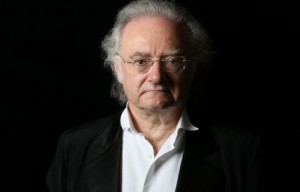 Carl Davis’s 1984 Our Hospitality score is a lovely complement to the action, idiomatically very much at home in the 1920s and yet appropriately timeless. The orchestra, under Timothy Brock’s baton, played the score without missing a frame. It’s a feat of musicianship to time over an hour’s worth of music to the images on a screen. Mr. Brock deserves much praise for this, as do the musicians of this excellent orchestra (concertmaster and first violin, Tereza Stanislav).
Carl Davis’s 1984 Our Hospitality score is a lovely complement to the action, idiomatically very much at home in the 1920s and yet appropriately timeless. The orchestra, under Timothy Brock’s baton, played the score without missing a frame. It’s a feat of musicianship to time over an hour’s worth of music to the images on a screen. Mr. Brock deserves much praise for this, as do the musicians of this excellent orchestra (concertmaster and first violin, Tereza Stanislav).
Hungry Hobos / Our Hospitality
Los Angeles Chamber Orchestra
UCLA’s Royce Hall
played Saturday June 8, 2013
for LACO’s 2013/14 season schedule and tickets, visit http://www.laco.org
